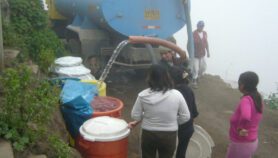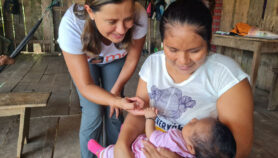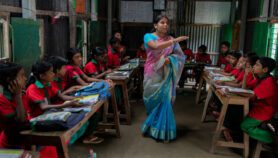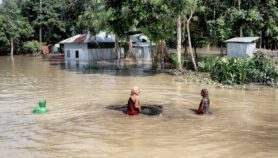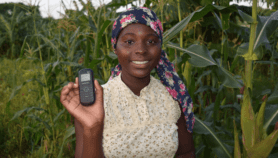Send to a friend
The details you provide on this page will not be used to send unsolicited email, and will not be sold to a 3rd party. See privacy policy.
As we enter the new millennium, the global knowledge base continues to expand. But so too does the information divide between the richer and poorer nations. Yet in order to overcome their social and economic problems, it is vital that developing countries have access to information, which in turn enables research, the generation of new knowledge, and ultimately the application of new technologies.
In the current international knowledge economy — in which information technology plays a key role — knowledge and information are increasingly being traded as a commodity. But as relatively weak players in this global marketplace, where supply and demand are the dominant forces, developing countries are in serious danger of missing out on this knowledge bounty. Given this context, can the current approach be ethically justifiable?
Escalating costs
One key source of new knowledge — scientific journals — has become increasingly unaffordable to developing countries, where the need for new information is particularly critical. This is due to escalating costs, depreciating local currencies and shrinking higher education research and library budgets.
At the University of Natal in South Africa, for example, which has almost 26,000 students, one of the main libraries has been forced to cut its subscriptions to more than 250 scientific journals over the past five years. During this period, the total cost of these journal subscriptions has more than doubled (see figure 1), increasing by 21.6 per cent every year, compared to an annual inflation rate of 7.4 per cent. Over the same five-year period, the number of free journals received by the library has fallen by more than half, and now stands at just 225 titles.
As a result, a large proportion of the library’s budget is now being used to support a smaller number of journals, leaving even less for books and other library materials. Such a situation is typical of that faced by many academic libraries in the developing world.
 Figure 1: Trends in journal subscriptions and their cost (1997 – 2002) |
An electronic solution?
Technological progress, most importantly in the form of the Internet, has promised to revolutionise access to scientific knowledge. Indeed, since the mid-1990s, electronic publication of scientific research has generated significant attention, as it potentially offers a more economical alternative to traditional paper publishing. But the accessibility and affordability of this new vehicle for scientific information is still hotly debated between scientists and publishers. And it is far from clear that the needs of those in developing countries are being adequately addressed.
For example, while some online journals offer free access to articles, the majority of electronic scientific publications can still only be accessed through subscriptions, site licenses or “pay-per-view” plans. By charging fees, publishers automatically exclude many in underdeveloped regions from acquiring the information they need. Free Internet publishing offers one partial solution in the long-term (see for example the Amedeo portal which provides access to free medical journals). But meanwhile many high profile journals — which contain the most important research — remain restricted access publications.
One alternative currently being offered by some online publishers is to allow free access to articles after a specified period has elapsed; for example, Science waives its charge after one year. However, limiting access to the most up-to-date knowledge in this way perpetuates the disadvantaged position of researchers in poorer nations.
Of course, a more fundamental problem for many is that lack of access to the Internet remains a major barrier to tapping into online resources. For example, the International Telecommunications Union estimates that only 7 per cent of the population of South Africa have access to the Internet. And even in those areas that are ‘connected’, use of the Internet is often prohibitively expensive. A recent South African web access survey confirmed that the Internet is used almost exclusively by above-average earners (with a monthly income over R11,000).
Rethinking the knowledge economy
The rapidly growing divide in access to information between the “haves” and “have-nots” outlined above is no longer tenable. A new approach to information sharing is essential to “de-commodify” information and make it more accessible to those who are currently missing out. This could in part be achieved by providing differential pricing for developing countries, and by implementing the concept of open access to published scientific data.
Last year, for example, saw an important step towards reducing the health information gap between rich and poor countries. The Health InterNetwork Access to Research Initiative (HINARI) — launched under the auspices of the World Health Organisation — now enables many medical schools and research institutes in low-income countries to get free (or low cost) online access to more than 2,000 top international medical journals.
The goals of initiatives such as HINARI are highly laudable. But I fear that without a fundamental rethink of the global knowledge economy, the future of science in developing countries — and its impacts on socio-economic development — looks bleak.
The author is deputy vice-chancellor (research and development) at the University of Natal, Durban, South Africa and director of the Centre of AIDS program of Research in South Africa.
Related external links:
Nature debate: free e-access to the primary literature
Health InterNetwork Access to Research Initiative



